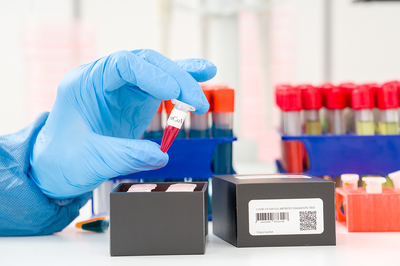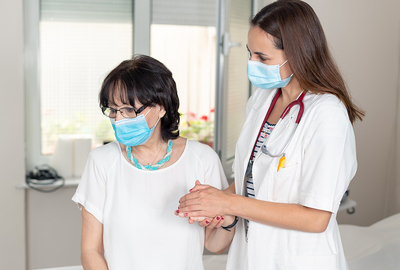
While researchers are just beginning to understand COVID-19 and its impacts, early findings suggest an alarming relationship between the virus and SUDs.
When COVID-19 first reached pandemic proportions earlier this year, Dr. Nora Volkow, the director of the National Institute on Drug Abuse (NIDA) warned that people with substance use disorders (SUDs) could be hit particularly hard by the virus. Now, research published in the academic journal, Molecular Psychiatry, confirms Dr. Volkow’s prediction to be true.
While there is still limited data regarding risks, disparity, and outcomes regarding the relationship between SUDs and COVID-19, this early research indicates that people with SUDs are not only at higher risk of contracting the virus, but are also likely to suffer worse consequences. Here’s a closer look at the findings and what they mean for people struggling with a history of addiction and SUDs.
COVID-19 and SUDs: Facts and Figures
After analyzing the electronic health records of more than 73 million patients at 360 hospitals in the US, researchers concluded the following:
- People with SUDs comprise 15.6 percent of people with COVID-19 compared to 10.3 percent for the general population.
- People who received an SUD diagnosis within the past year were 10.2 times more likely to have COVID-19 than those without a recent SUD diagnosis.
- People with a recent diagnosis of tobacco use disorder, alcohol use disorder, cocaine use disorder, and cannabis use disorder were also significantly overrepresented among people with COVID-19.
- People who’d had an SUD at any point in their lifetime were 1.5 times more likely to have COVID-19, with opioid use disorder outpacing other disorders.
- People with lifetime SUD diagnoses also have more severe outcomes than others, including hospitalizations and deaths.
- The disparity was especially pronounced between African Americans and Caucasians: 13 percent of African Americans with lifetime SUDs and COVID-19 died, compared to 8.6 percent of Caucasians with the same diagnosis.
COVID-19 and SUDs: Relationships and Causes
All of this begs the question: What are the causes of this phenomenon? As with all things pertaining to addiction and SUD, it is multi-factored and complex.
For starters, chronic substance use harms the body in many ways. This makes drug users more susceptible to infection. In the case of COVID-19, which wreaks havoc on the respiratory system, this can be especially problematic as opioids can also harm pulmonary health, in addition to brain and heart health. The same applies to tobacco use disorder due to the long-term lung damage that occurs.
Furthermore, behaviors associated with illicit drug use also increase the risk of contracting an infectious disease. For example, people with drug-seeking behaviors are less likely to adhere to social distancing requirements or to follow best practices for hygiene, such as frequent handwashing.

Screening people suspected of having COVID-19 for SUDs can ensure that they get access to the proactive care and monitoring they need.
And then there’s the ancillary effect. Aside from directly comprising health, addiction also interferes with access to health care due to the stigma. NIDA concludes, “These barriers make it more likely that people with SUDs who contract COVID-19 will not receive the best treatment or will delay seeking treatment, putting them at greater risk of adverse outcomes.”
As to why African Americans are most impacted despite the fact that the rates of opioid misuse are consistent between the two populations, social and economic disparities contribute to higher rates of co-morbidities related to hypertension, diabetes, cardiovascular disease, and kidney disease.
COVID-19 and SUDs: The Treatment Imperative
The takeaway, according to experts? Patients who are suspected of having coronavirus should be screened for SUDs and a history of smoking and/or vaping. This will ensure that their care is closely monitored in order to minimize the risk of adverse complications to the virus. Dr. Volkow further asserts that “addressing SUD should be part of any comprehensive public health approach to addressing COVID-19.”
If you or someone you love is struggling with a substance use disorder, diagnosis and treatment can make all the difference—both in terms of COVID-19 and wellness in general. St. Louis area rehab center Harris House has been providing targeted addiction treatment for more than 50 years. To get started on the path to recovery and wellness, call us to learn about admissions today.







